Kenyan architectural studio Cave Bureau has reworked the Outdated Sharjah Slaughterhouse into the Anthropocene Museum 9.0 as a part of the Sharjah Structure Triennial.
Cave Bureau selected a still-functioning slaughterhouse in central Sharjah as the house of the ninth version of its roaming Anthropocene Museum.
“We’ve got welcomed artists and creatives to be within the museum, so that you stroll by means of a working slaughterhouse, but in addition a museum,” Cave Bureau co-founder Kabage Karanja informed Dezeen.
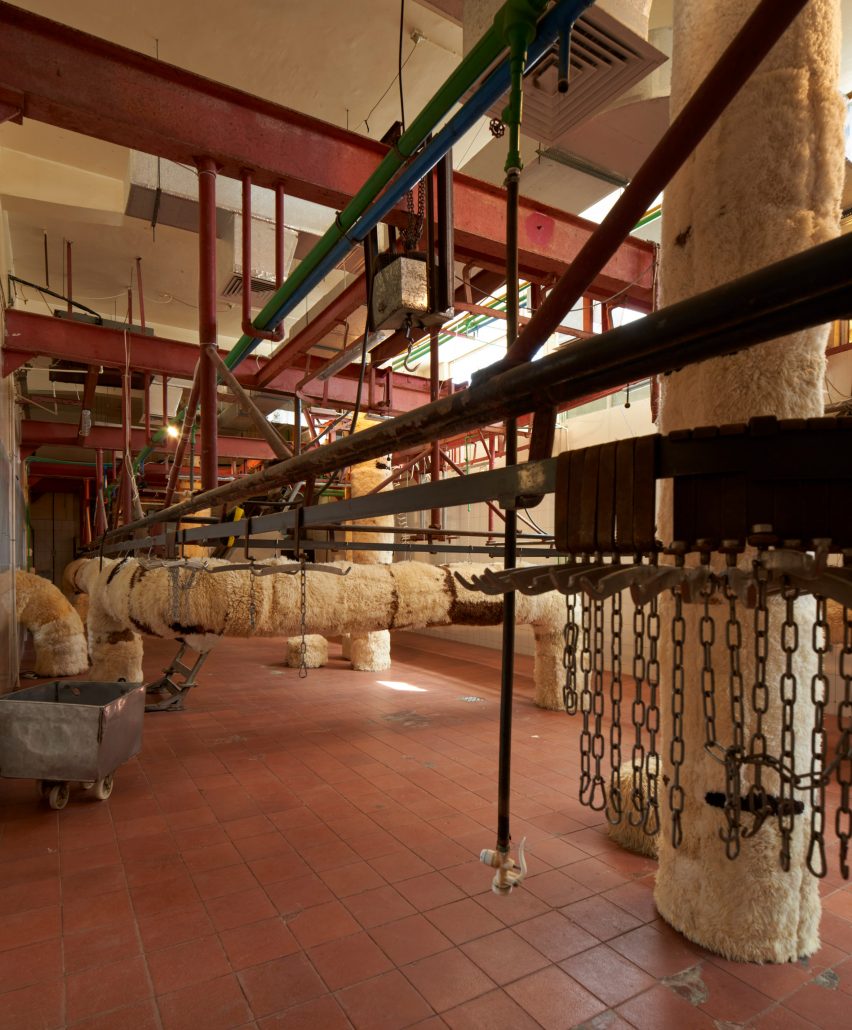
“We have been invited to pick a website in any a part of town of Sharjah and make an intervention,” defined Karanja.
“We selected the Outdated Sharjah Slaughterhouse, as an extension of the Sharjah Structure Triennial’s technique to embed an exhibition program inside the material of town,” he continued.
“A strong ambition that we discuss with as an act of reverse futurism, the place they co-opt each previous and new uncared for buildings of town as a cultural canvas to set off new regenerative interventions that may spur town’s development, by means of a wealthy change of concepts and concrete experiments.”
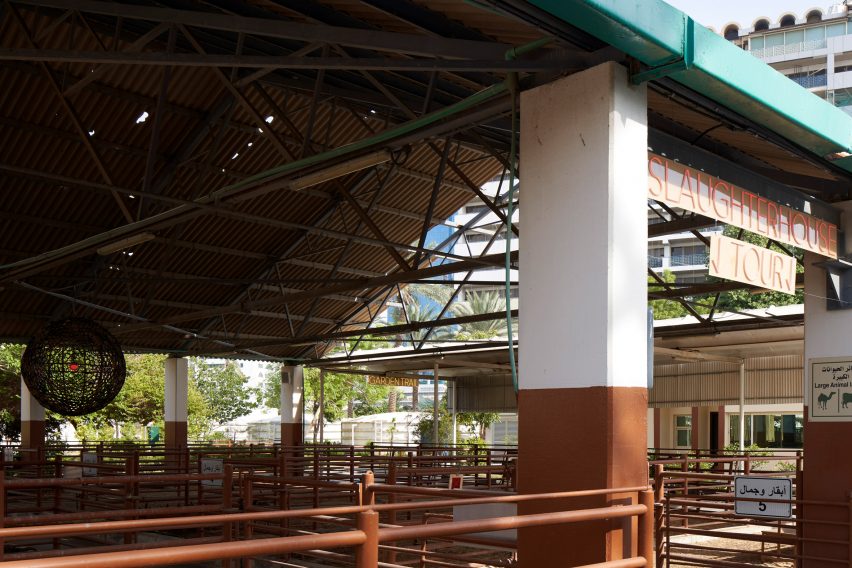
Guests journey by means of the museum following the route that animals take when being processed by means of the slaughterhouse.
First, they enter by means of the gates, the place a neon signal saying “slaughterhouse tour” was erected, earlier than coming into the pens after which travelling up a ramp into the slaughterhouse and processing rooms.
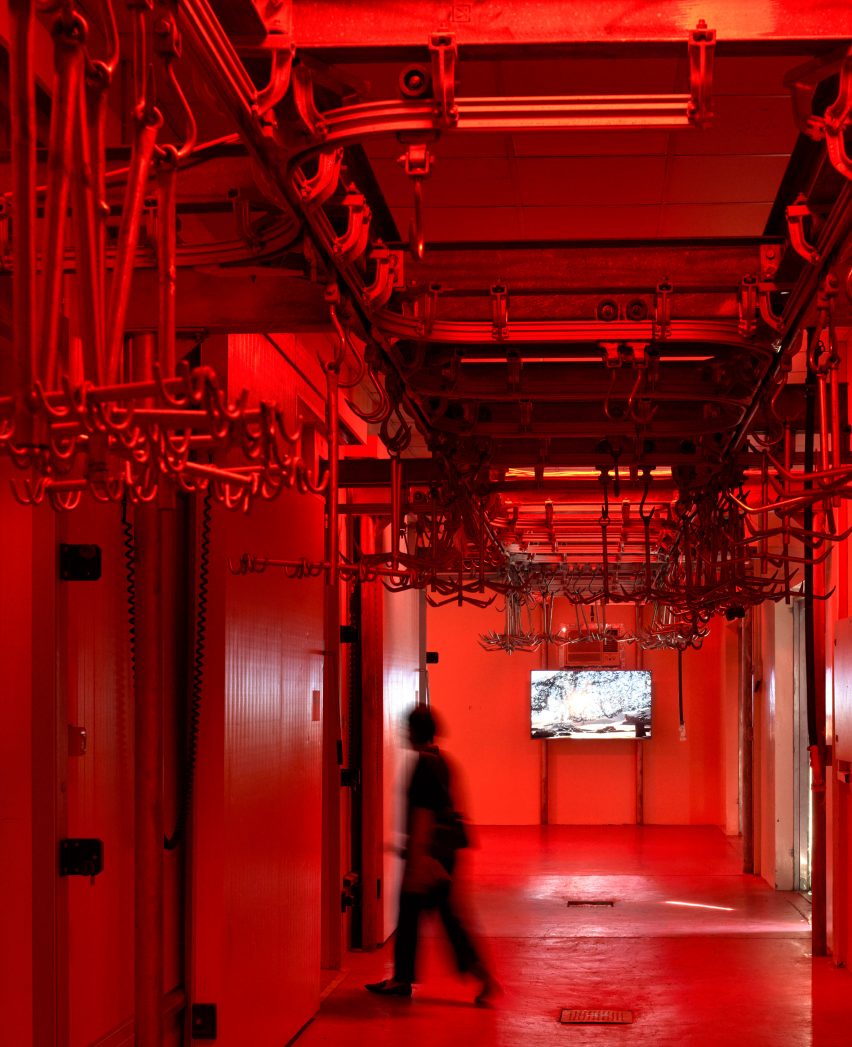
“The idea of our set up was the difference and tour of Sharjah’s previous slaughterhouse, whose major protagonists are the animals — cows, goats, sheep, and camels — consumed within the metropolis; usually with out considered their origins or how they’re processed,” defined Karanja.
“The viewers is corralled by means of an ever-present, however seldom mirrored upon municipal occasion house, in a constructing that’s now solely intermittently used.”
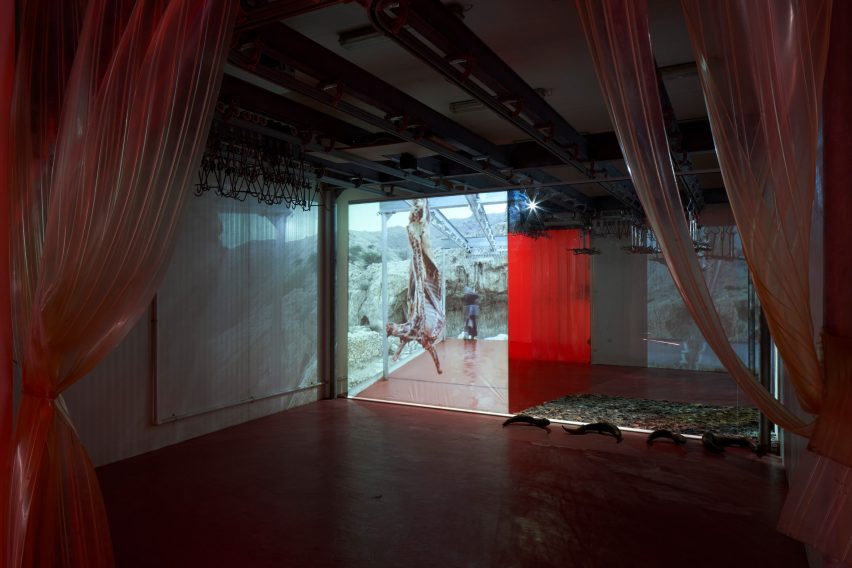
Cave Bureau’s Anthropocene Museum creates installations and displays analyzing points surrounding decolonialisation and decarbonisation which are centered on “producing architectural modes of therapeutic”.
The studio lately created an Anthropocene Museum exhibition for the Louisiana Museum of Trendy Artwork in Denmark.
The most recent version of the museum goals to attract consideration to the environmental affect of meat rearing and the method of commodification and commercialisation.
“The importance of the slaughterhouse is that it sits exterior the general public’s consciousness and but trying again at our early homosapien heritage, this was at all times intertwined,” mentioned Karanja.
“On a worldwide scale, man-induced livestock proliferation has constituted the best biomass of mammalian life on earth, with animals a commodity that’s purchased and offered to the very best bidder,” he continued.
“In equal and potent measure, human beings have been commodified by means of capitalism, purchased and offered to the very best consumerist bidder. A reference to a current, near-forgotten previous additionally emerges – enslaved Africans have been led from the Indian Ocean shores by Arab retailers to the Center East, and certainly the Emirates, like livestock.”
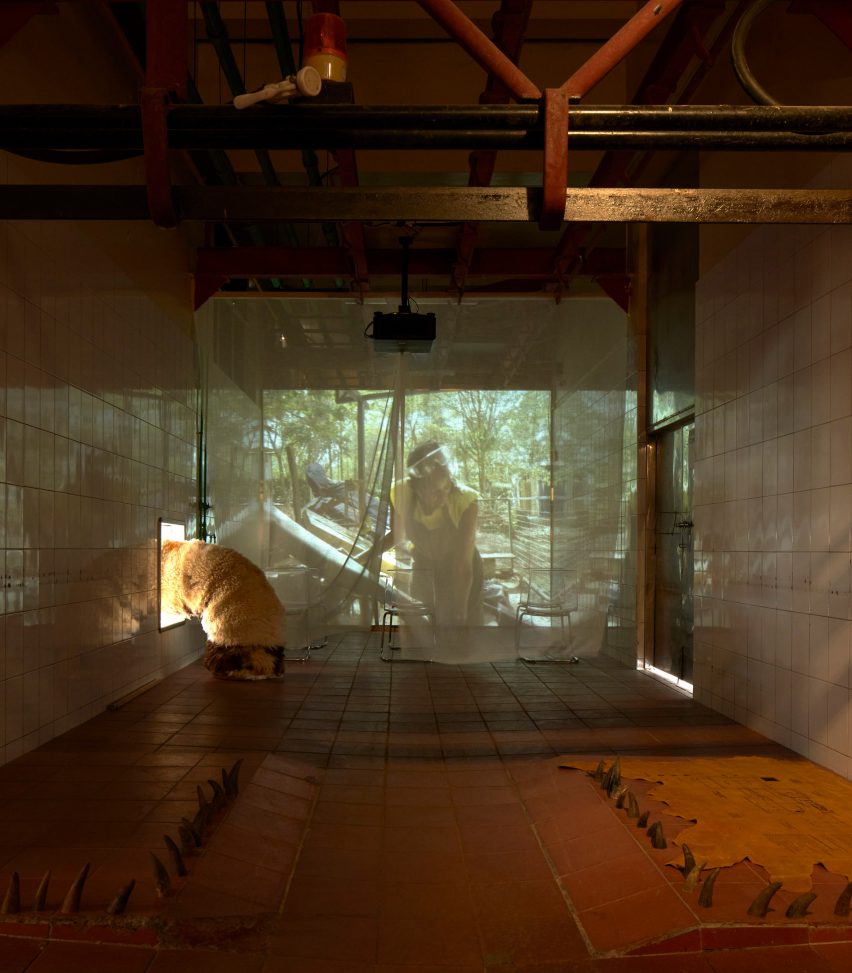
Inside the slaughterhouse, Cave Bureau curated a collection of artists inside the totally different areas often used for processing the meat.
The co-curated house contained portray, images, sculpture, set up, sound and digital actuality by artists together with Joseph Kamaru KMRU, Densu Moseti, James Muriuki, Beatrice Wanjiku, Jay Patel, and Ogeto Nyamwaya.
The house additionally included a piece by Adrian Pepe that was commissioned straight by the Sharjah Structure Triennial.
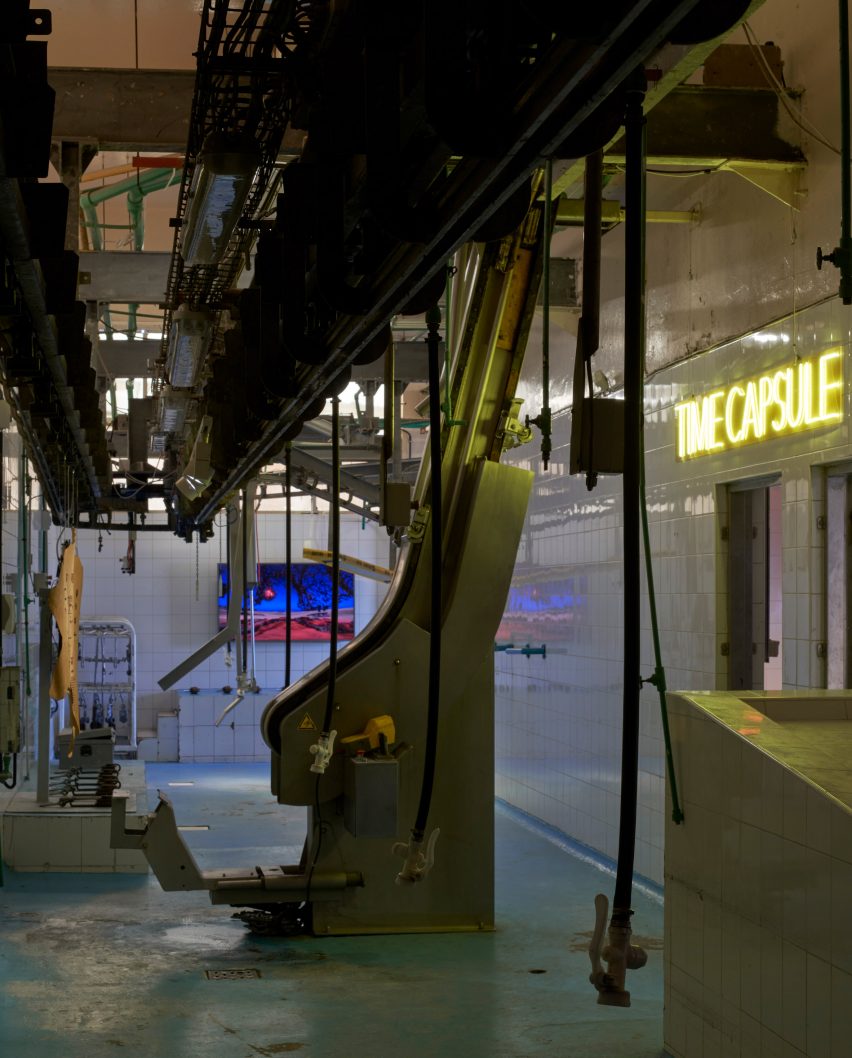
“For the primary time we had the chance to increase the bounds of museology, by producing a co-curated program, with a number of artist works inside a uncooked municipal and but culturally energetic house that might not usually be perceived as a museum,” defined Karanja.
“The phrases of prolific thinkers have been laster printed on cowhide leather-based, similar to Edouard Glissant the place within the e-book Archipelago he says, ‘In the long run, the thought is to convey the world into contact with the world, to convey a few of the world’s locations into contact with others… the artistic endeavors should create the museum reasonably than the museum creating the artistic endeavors’.”
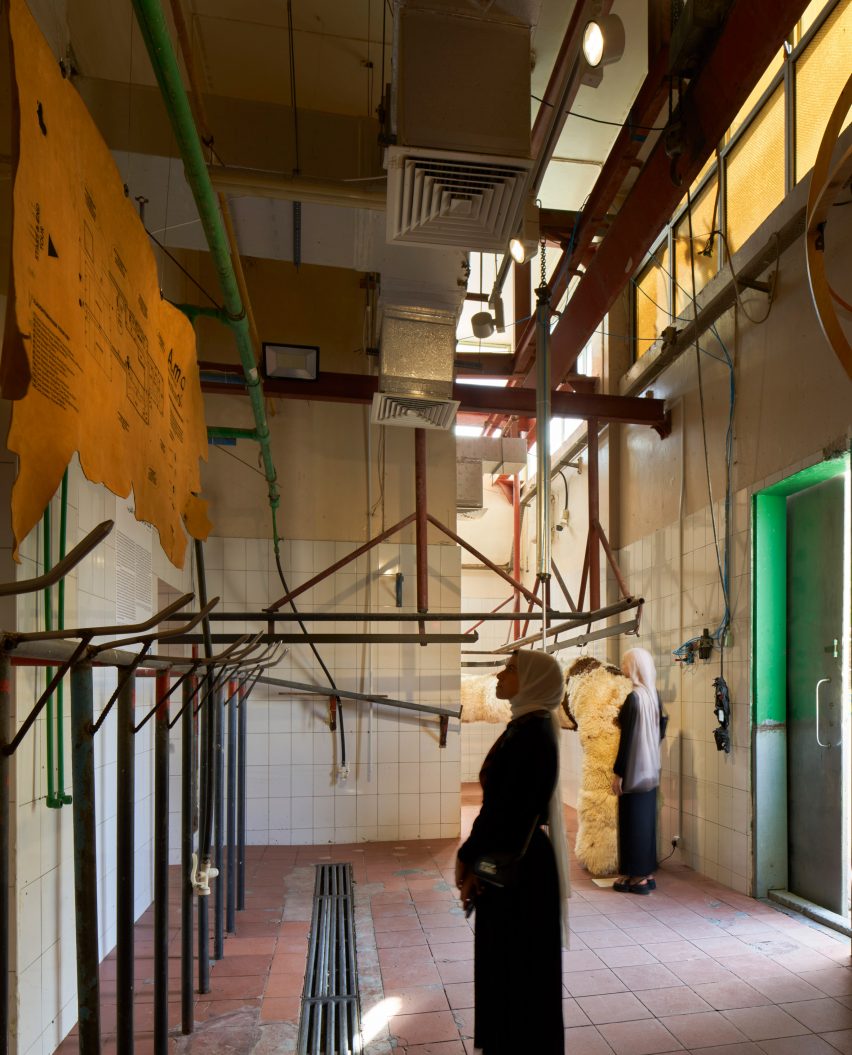
Karanja hopes that this model of the museum will encourage individuals to rethink the shifting nature of cities.
“We hope guests will view the ever-shifting constructed panorama of cities and by extension life, as a chance for reversed notions of development, by means of introspection, and non secular reconnection,” he mentioned.
“By taking guests into a distinct and sometimes uncomfortable house similar to this, can set off a broader planetary consciousness, that makes an attempt to apprehend our state of existence on the earth as we speak with out us constructing nearly something in any respect to specific that.”
That is the second version of the Sharjah Structure Triennial. It was curated by Nigerian architect Tosin Oshinowo who defined the theme of shortage in a current interview with Dezeen. We rounded up 12 intriguing pavilions and installations from the occasion.
The images is by Edmund Sumner.
Sharjah Structure Triennial 2023 takes place from 11 November 2023 to 10 March 2024 at numerous places throughout Sharjah. See Dezeen Occasions Information for an up-to-date record of structure and design occasions going down world wide.


